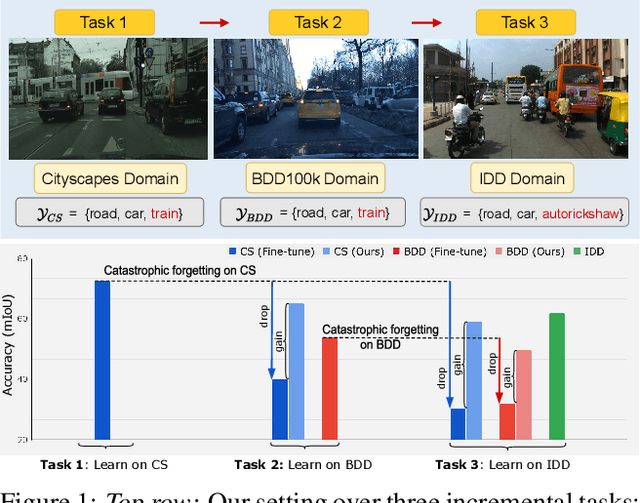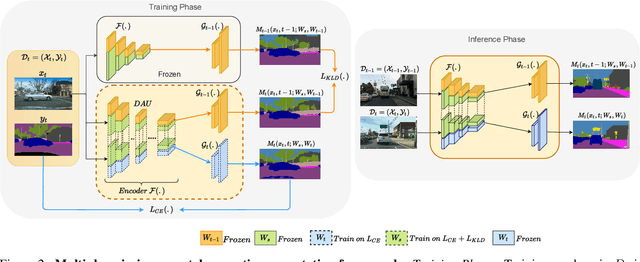Prachi Garg
POET: Prompt Offset Tuning for Continual Human Action Adaptation
Apr 25, 2025Abstract:As extended reality (XR) is redefining how users interact with computing devices, research in human action recognition is gaining prominence. Typically, models deployed on immersive computing devices are static and limited to their default set of classes. The goal of our research is to provide users and developers with the capability to personalize their experience by adding new action classes to their device models continually. Importantly, a user should be able to add new classes in a low-shot and efficient manner, while this process should not require storing or replaying any of user's sensitive training data. We formalize this problem as privacy-aware few-shot continual action recognition. Towards this end, we propose POET: Prompt-Offset Tuning. While existing prompt tuning approaches have shown great promise for continual learning of image, text, and video modalities; they demand access to extensively pretrained transformers. Breaking away from this assumption, POET demonstrates the efficacy of prompt tuning a significantly lightweight backbone, pretrained exclusively on the base class data. We propose a novel spatio-temporal learnable prompt offset tuning approach, and are the first to apply such prompt tuning to Graph Neural Networks. We contribute two new benchmarks for our new problem setting in human action recognition: (i) NTU RGB+D dataset for activity recognition, and (ii) SHREC-2017 dataset for hand gesture recognition. We find that POET consistently outperforms comprehensive benchmarks. Source code at https://github.com/humansensinglab/POET-continual-action-recognition.
* ECCV 2024 (Oral), webpage https://humansensinglab.github.io/POET-continual-action-recognition/
Multi-Domain Incremental Learning for Semantic Segmentation
Oct 23, 2021



Abstract:Recent efforts in multi-domain learning for semantic segmentation attempt to learn multiple geographical datasets in a universal, joint model. A simple fine-tuning experiment performed sequentially on three popular road scene segmentation datasets demonstrates that existing segmentation frameworks fail at incrementally learning on a series of visually disparate geographical domains. When learning a new domain, the model catastrophically forgets previously learned knowledge. In this work, we pose the problem of multi-domain incremental learning for semantic segmentation. Given a model trained on a particular geographical domain, the goal is to (i) incrementally learn a new geographical domain, (ii) while retaining performance on the old domain, (iii) given that the previous domain's dataset is not accessible. We propose a dynamic architecture that assigns universally shared, domain-invariant parameters to capture homogeneous semantic features present in all domains, while dedicated domain-specific parameters learn the statistics of each domain. Our novel optimization strategy helps achieve a good balance between retention of old knowledge (stability) and acquiring new knowledge (plasticity). We demonstrate the effectiveness of our proposed solution on domain incremental settings pertaining to real-world driving scenes from roads of Germany (Cityscapes), the United States (BDD100k), and India (IDD).
 Add to Chrome
Add to Chrome Add to Firefox
Add to Firefox Add to Edge
Add to Edge